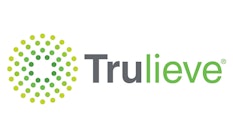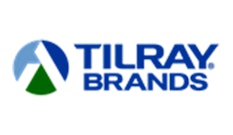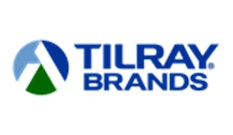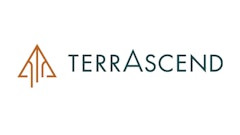
Following news of Harvest Health & Recreation’s latest acquisition, officials at the Pennsylvania Department of Health issued a response to the company, calling the press release’s contents a “blatant misrepresentation.” Philadelphia Inquirer reporter Sam Wood III first reported this exchange.
On April 9, Harvest Health & Recreation announced that it had entered into a binding, definitive agreement to acquire CannaPharmacy Inc., which holds a grower-processor license in Pennsylvania along with other cannabis business licenses in Delaware, New Jersey and Maryland. The move, once approved and closed, would place Harvest operations in 213 cannabis facilities, 130 dispensaries and 17 U.S. states. But whether those assets mean that Harvest holds those business licenses is a matter that the Pennsylvania Department of Health is calling out.
The health department threatened to revoke Harvest’s existing licenses because of how the company’s management was communicating its holdings in Pennsylvania.
CannaPharmacy is the owner of Franklin Labs LLC in Pennsylvania, which owns a 46,800-square-foot cultivation facility in Reading, Pa. Harvest’s management team touted this expansion of its Mid-Atlantic footprint in a press release announcing the M&A news.
John Collins, the department’s director of the Office of Medical Marijuana, wrote in his April 10 letter to Harvest Health & Recreation CEO Steve White that “permits are nontransferable [in Pennsylvania]. … Accordingly, even after completion of the acquisition, Franklin Labs LLC will retain ownership of the permit and Harvest Health & Recreation Inc. may not represent that it owns the permit issued to Franklin Labs LLC.”
Harvest’s transaction is “subject to satisfaction of customary closing conditions, including receipt of regulatory approvals in the relevant states,” according to the press release accompanying the news. It’s a standard provision of M&A transaction announcements, but this response from Pennsylvania authorities opens up a discussion about how licenses, as assets, are transferred in legal business acquisitions—in an industry predicated upon state regulatory approval.
“This is a new and particularly acquisitive time in the cannabis industry and many transactions involve assets that fall within a number of individual state regulatory systems,” a spokesperson for Harvest Health & Recreation told Cannabis Business Times. “Harvest will always evaluate its options in order to be fully compliant in any state in which it operates.”
But the Pennsylvania letter went beyond the M&A news.
A second concern brought up older business in Harvest’s mention of its existing Pennsylvania footprint: “Harvest currently has seven state licenses allowing up to 21 retail stores throughout the state,” according to the press release.
Individual companies are capped at five medical marijuana dispensary licenses in Pennsylvania, and each license allows that company to operate three storefronts—effectively limiting companies to 15 dispensaries. (This is according to Section 616 (3) of the state’s 2016 medical marijuana law. The language is specific: "The department may not issue more than one individual grower/processor permit to one person.")
The disconnect between the number of licenses Harvest Health & Recreation Inc. claims to hold in the state (seven, which exceeds the permissible count) and the number of licenses the state Department of Health perceives Harvest Health & Recreation Inc. as holding (zero) seems to be an issue of interpretation: At what point does a legal entity’s public image begin and end?
The licenses were neither awarded to nor filed under Harvest Health & Recreation Inc., but rather individual LLCs.
Case in point: In the second round of Pennsylvania medical marijuana dispensary business licensing (for which permits were awarded in December 2018), Harvest won six licenses for a potential total of 18 storefronts—again, a number that exceeds the state license cap. These applications, however, came in the form of different LLCs: Harvest of Southeast PA LLC, for example, and Harvest of North Central PA LLC. In each application, the same management team (that of Harvest Health & Recreation Inc. in Tempe, Ariz.) is cited.
Earlier, in 2017, in the state’s first round of medical marijuana dispensary business licensing, a company called SMPB Retail LLC, out of Arizona, won a license for a company called Harvest of Reading.
In total, seven LLCs with a connection to Harvest Health & Recreation Inc. in Tempe, Ariz., hold dispensary licenses in Pennsylvania. That allows for the potential of up to 21 dispensaries in the state, as Harvest plainly laid out in its press release.
But, still, according to the Department of Health letter, the state has an issue with how this information is being conveyed.
“Harvest Health & Recreation Inc. did not apply for, or receive, any permits in Pennsylvania.” Collins wrote (italics his). “Because each business is recognized as a separate legal entity under law, the department expects each to operate as independent entities as represented in the permit applications.
“Any continued misrepresentation that these entities are one in the same will be construed as a falsification of the permit applications and will result in the Office taking action against each entity, including possible revocation of permits,” Collins wrote.
Harvest Health & Recreation responded to Cannabis Business Times’ request for comment: “As a publicly-listed company operating in the cannabis space, we’re required to file public notice of intended acquisitions at an early stage in the process. Harvest is fully committed to always operating within state guidelines and working closely with Pennsylvania’s Department of Health on their medical cannabis program. We look forward to bringing a high-quality experience and serving patients in need throughout the Commonwealth.”
This sudden scrutiny from Pennsylvania Department of Health, however, comes soon after The Boston Globe’s Spotlight investigative team published the first article in a series on cannabis license transfers and an emergent web of business ownership in Massachusetts. The story raised questions about how large companies were circumventing state regulations to acquire—whether through outright ownership or management agreements of some sort—multiple cannabis business licenses that exceed a number allowed by state regulators.
The reporters at the Globe focused on Acreage Holdings and Sea Hunter.
In the case of Pennyslvania and the matter at hand, the state issued its dispensary licenses to seven distinct LLCs and now takes Harvest Health & Recreation Inc. to task for how that information is being communicated to the public.
























